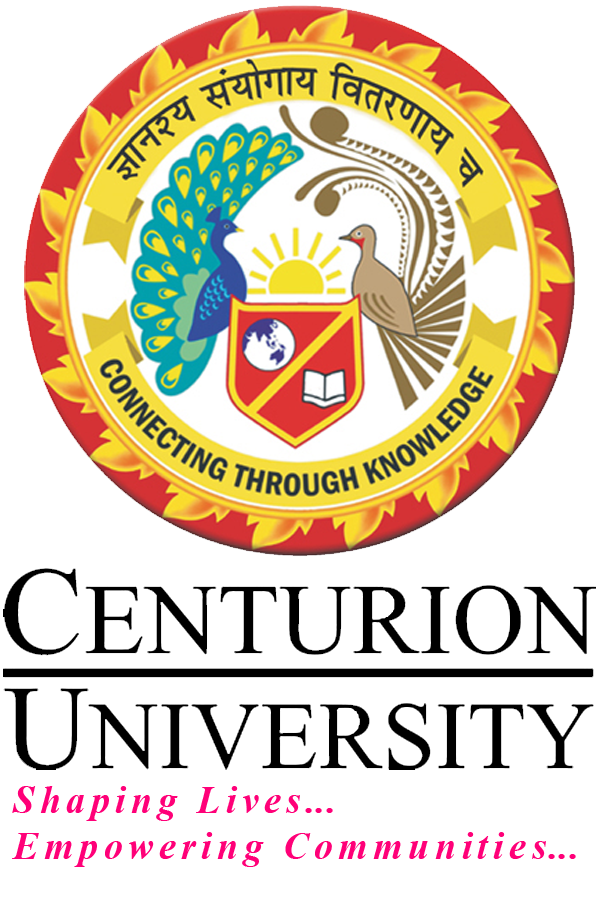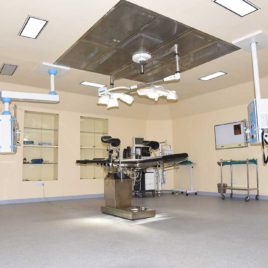This skill course is about preparing and maintaining operating theatres and equipment and assist surgical and anesthetic teams during operation. Along with that they prepare patients and operating room. They check all the set up requirements for surgeries and adjust all the surgical equipments according to the operation.
Operation Theatre Technology
Course Attendees
Still no participant
Course Reviews
Still no reviews
Code(Credit) : ABC01(0-2-2)
| Scheme | Skill for Success (SFS) |
| NSQF Level | 4 |
| Duration | 1 Year |
| Sector | Skill Council for Healthcare (SCH) |
| Occupations | Direct Care |
| Entry Qualification | 12th Class Science |
| Minimum Age | 18 Years |
| Aligned to (QP) | http://www.healthcare-ssc.in |
Course Objectives:
- Apply the knowledge and skills of handling operation theatre room to provide safe and effective care to individual undergoing operational procedures.
- Demonstrate relative knowledge and understanding of vital parameters to be maintained during respective operations.
- Learn the utilization of numerous diagnostic equipment for example Ventilators, Monitors, Defibrillators, C- arm etc.
After completing this program-
- The trainee will be exposed to health sectors to prepare patients for operation.
- The trainee will able to understanding and ensuring the surgical and anesthetic teams during operation
- The trainee will expert on respond to the surgical and anesthetic teams and patients during the phase of operation or prior to that.
- The trainee will check all the requirements of an operation prior the operation.
- Can join health industries as a operating theatre technician to assist a doctor.
- Can become health attendant in the operation theatre
- Can do ATT program in the same
Learning Record:
The trainee will submit a Practice/Project/Learning record after each class/session.
Assessment Process:
- The assessment agencies should have an expert to conduct assessment NOS wise and every trainee should score a minimum of 70% in the overall assessment.
Course Syllabus/Contents:
Module 1: (3hrs)
Basic knowledge of Operation Theatre environment: Floor, walls, ceilings and door, Lighting, Ventilation, Temperature and Humidity etc.
Practice:
Inspection of OT and demonstration of interior architecture of OT, Lighting, Ventilation, Temperature and Humidity etc.
Module 2: (6 hrs)
Understanding the Duty and responsibility of OT technician. The Operating List of patients, Particulars that Appear on the Operating List.
Practice:
Administration in the Operation Theatre.
Module 3: (3 hrs)
The Registers Used in the Operating Theatres; Operating Register, Register regarding abortions and pregnancy residues, Poison drug register, Specimen register for biopsies, Death register
Practice:
Preparation of The Operating list of patients; Particulars that Appear on the Operating List; Operating Register
Module 4: (6 hrs)
Risks in the Operation Theatre which can Lead to Possible Law Suits: Identification, Permission, Surgical Asepsis, Checking of Instruments, Swabs and Needles, Assistance during Operation, Keeping of Reports, Injuries, Burns, Fall, Position, Tourniquet, Electric shock, Apparatus and Other causes of injuries, Explosions, Precautionary Measures, Mental (psychological) Injuries, Violation of Privacy and Name, Care of Unconscious Patients, Improper identification of specimen, blood, medicines etc.
Module 5: (3 hrs)
Concept of Health & Disease: Definition, Dimensions, Determinants of health. Definition of disease
Practice:
Health and disease perspective & Quality of health
Module 6: (6 hrs)
Levels of Health care delivery system in India; The basic understanding of Primary, Secondary and Tertiary levels of hospitals and their functions. The basic understanding of classification of patients, difference between medicinal cases and surgical cases.
Practice:
History taking
Module 7: (3hrs)
Structure and functions of different systems of our body
Practice:
Physical examination (General) of the patient
Module 8: (3hrs)
Blood: Definition, Composition and function of blood cells, Blood formation and clotting, Blood group and the Rhesus factor.
Practice:
Plus, Blood pressure reading, Technique of Blood sample collection
Module 9: (3hrs)
Types of medicines need in OT: Analgesics., antipyretics, antibiotics, disinfectants, and anaesthetic agents. When they are used.
Practice:
Administration technique of different type of injections. Methods of administration of Blood transfusion, need of blood transfusion, need for IV fluid.
Module 10: (6 hrs)
Oxygen Therapy; Definition, Causes and responses to hypoxemia, Clinical signs of hypoxemia, need of oxygen therapy, Evaluation of patients receiving oxygen therapy, Hazards of oxygen therapy Precautions during oxygen therapy.
Practice:
Technique of Oxygen Therapy, Nebulization Technique
Module 11: (3 hrs)
Basics of Anaesthetics, Definition, Need for anaesthesia, Types of Anaesthesia and usage.
Practice:
Pre-Operative Assessment and preparation: Pre-aesthetic Assessment and Pre-operative Check of Patient Particulars; Pre-operative Preparation.
Module 12: (3 hrs)
Monitoring and Recording the Physiological Status; During Anesthesia and Surgery, Monitoring and Recording of the Patient’s Post-anesthetic status, Checking the drugs and equipment.
Practice:
Monitor pulse and Blood Pressure, Monitoring patients before and after administering anesthetic drugs (need, duration, and emergency signs), Emergency management to clear airway, provide critical care.
Module 13: (3hrs)
Different methods of sterilization & disinfections, Sharp or Semi-sharp Instruments, Micro-surgical and Ophthalmic Instruments, Air-powered Instruments, Electrical Instruments, Special Instruments e.g. endoscopes.
Practice:
Sterilization & disinfections process of Sharp or Semi-sharp Instruments, Micro-surgical and Ophthalmic Instruments, Air-powered Instruments, Electrical Instruments, Special Instruments e.g. endoscopes.
Module 14: (3 hrs)
Infection prevention and safety procedure, Linen and the Disposable Draping Material, Care and Handling of Clean Linen, Disposable Patient Paper Drapes.
Practice:
Draping: draping Techniques, Type of Drapes in standard OT pack
Module 15: (3 hrs)
Handling of Sutures during Surgery, Packing and Storage Methods of Suture Materials, Swabs, Needle and Instrument Counts, Counting Procedure, Incorrect Count.
Practice:
Handling of Sutures during Surgery, Packing and Storage Methods of Suture Materials, Swabs, Needle and Instrument Counts, Counting Procedure.
Module 16: (3 hrs)
Handling Septic Cases: Before the Day’s Operating Schedule, During an Operation, In Between Operations, After Completion of the Day’s Operating Schedule.
Practice:
How to manage sepsis cases: precaution in OT.
List of Projects/Products/Publications :
Reference Book :
- Brunner & Suddarth's Textbook of Medical-Surgical Nursing-15th Edition
- Medical-Surgical Nursing by Joyce Black Jane Hawks
- Essentials of Medical-Surgical Nursing by BT Basavanthappa
- Textbook on Operation Theater Technology by BC Bhagavan, Publisher- EMMESS
- Textbook on Operation Theater Nursing by I Clement
- Operation Theatre Techniques and Management by M.P. Sharma
- Kirk’s Basic Surgical Techniques by Fiona Myint- 7th Edition
Session Plan:
Section 1
Topic: Basic knowledge of Operation Theatre environment: Floor, walls, ceilings and door, Lighting, Ventilation, Temperature and Humidity etc.
Section 2
Topic: Understanding the Duty and responsibility of OT technician. The Operating List of patients, Particulars that Appear on the Operating List.
Section 3
Topic: The Registers Used in the Operating Theatres; Operating Register, Register regarding abortions and pregnancy residues, Poison drug register, Specimen register for biopsies, Death register
Section 4
Topic: Risks in the Operation Theatre which can Lead to Possible Law Suits: Identification, Permission, Surgical Asepsis, Checking of Instruments, Swabs and Needles, Assistance during Operation, Keeping of Reports, Injuries, Burns, Fall, Position, Tourniquet, Electric shock, Apparatus and Other causes of injuries, Explosions, Precautionary Measures, Mental (psychological) Injuries, Violation of Privacy and Name, Care of Unconscious Patients, Improper identification of specimen, blood, medicines etc.
Video : https://youtu.be/swvSBuMNkvU
Notes :http://sknmcgh.org/skn_use/manual/Operation%20Theatre%20Manual-1.pdf
Section 5
Topic: Concept of Health & Disease: Definition, Dimensions, Determinants of health. Definition of disease
Section 6
Topic: Levels of Health care delivery system in India; The basic understanding of Primary, Secondary and Tertiary levels of hospitals and their functions. The basic understanding of the classification of patients, the difference between medicinal cases and surgical cases.
Section 7
Topic: Structure and functions of different systems of our body
Section 8
Topic: Blood: Definition, Composition and function of blood cells, Blood formation and clotting, Blood group and the Rhesus factor.
Section 9
Topic: Types of medicines need in OT: Analgesics., antipyretics, antibiotics, disinfectants, and anaesthetic agents. When they are used.
Section 10
Topic: Oxygen Therapy; Definition, Causes and responses to hypoxemia, Clinical signs of hypoxemia, need of oxygen therapy, Evaluation of patients receiving oxygen therapy, Hazards of oxygen therapy Precautions during oxygen therapy.
Video : https://youtu.be/FT7t9hroLLg
Presentation :https://www.slideshare.net/sinsu12/nebulization-105157952
Notes :http://www.crto.on.ca/pdf/PPG/Oxygen_Therapy_CBPG.pdf
Section 11
Topic: Basics of Anaesthetics, Definition, Need for anaesthesia, Types of Anaesthesia and usage.
Video : https://youtu.be/Qe4HQIuvclQ
Presentation :https://www.slideshare.net/mahesh0926/anesthesia-ppt
Notes :https://www.ouh.nhs.uk/patient-guide/leaflets/files/13762Panaesthesia.pdf
Section 12
Topic: Monitoring and Recording the Physiological Status; During Anesthesia and Surgery, Monitoring and Recording of the Patient’s Post-anesthetic status, Checking the drugs and equipment.
Video 1 : https://www.youtube.com/watch?v=37qWjQaKLvs
Video 2 : https://www.youtube.com/watch?v=KIW_IWBpzdA
Section 13
Topic: Different methods of sterilization & disinfections, Sharp or Semi-sharp Instruments, Micro-surgical and Ophthalmic Instruments, Air-powered Instruments, Electrical Instruments, Special Instruments e.g. endoscopes.
Video :
Presentation :https://www.slideshare.net/tamilsilambarasan/sterilization-and-disinfection-45668455
Section 14
Topic: Infection prevention and safety procedure, Linen and the Disposable Draping Material, Care and Handling of Clean Linen, Disposable Patient Paper Drapes.
Section 15
Topic: Handling of Sutures during Surgery, Packing and Storage Methods of Suture Materials, Swabs, Needle and Instrument Counts, Counting Procedure, Incorrect Count.
Section 16
Topic: Handling Septic Cases: Before the Day’s Operating Schedule, During an Operation, In Between Operations, After Completion of the Day’s Operating Schedule.
Industry Partnership :

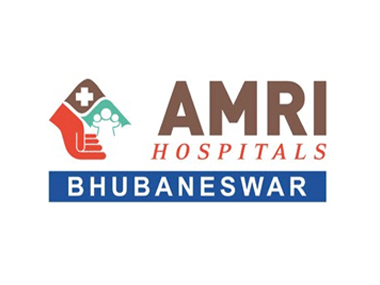

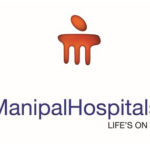
Latest News & Student Testimonials
Media
Our Main Teachers
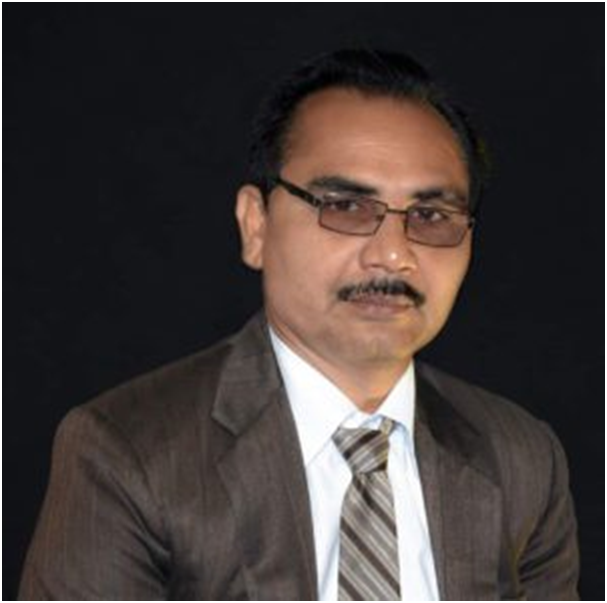
Sunil Kumar Jha is working as the Dean of School of Paramedics and Allied Health Sciences at Centurion University of Technology and Management since 2016. His major areas of expertise are medical diagnostics, clinical pathology, diagnostic bacteriology, histopathology and patient safety. He has completed MBA-HMGT, MLT, DAF, MHD and some of the courses in Alternative […]
